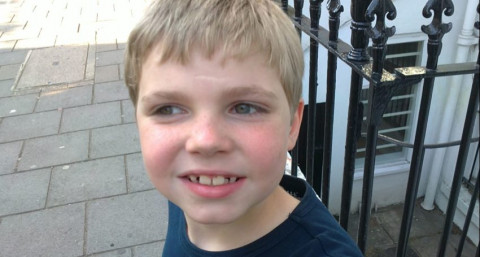
Inspired by his son, Flinders optometry researcher Dr Paul Constable has commenced working with Yale Child Study Center and Great Ormond Street Children’s Hospital to research links between autism and the eye’s response to light.
Supported by a $US50,000 donation from the Alan B. Slifka Foundation, the research will look into the incidence of reduced light adapted electro-retinogram (ERG) b-wave amplitude in children diagnosed with Autism Spectrum Disorder.
Flinders University senior lecturer Dr Constable says the new research data will provide a platform to further study the mechanism for reduced b-waves in autism spectrum disorder (ASD) and related neurological disorders such as depression and schizophrenia.
The retina may have a different sensitivity to light in autism because the retina and the brain develop together.
“We hope to see if the retinal responses can tell us about the way the brain has developed in autism.”
Dr Constable’s research focuses on using clinical electrophysiology to measure retinal responses to light in individuals with ASD.
“Our multi-centre study in the US, London and Flinders Vision will provide a measure of retinal sensitivity to light that might inform our understanding of hypersensitivities to light that is prevalent in ASD,” says Dr Constable, whose son Miles was diagnosed with ASD at the age of three.
“The main aim of this study is to further our understanding of the incidence of the reduced b-wave amplitude in children with a diagnosis of ASD and to relate these findings to similar neurodevelopmental and neurodegenerative conditions in which the ERG waveform also shows differences between affected and normal individuals.”

Miles with his mother Helle, and father Dr Paul Constable. Main image – Miles Constable as a young child.
The new project will analyse the ‘daylight’ or photopic light responses in a large cohort of children with a diagnosis of ASD and compare with normative databases in age-matched typical children to further define the incidence of atypical b-waves in ASD in a larger population than has been previously studied.
Dr Constable says the electroretinogram is also abnormal in related neurodevelopmental and neurodegenerative disorders such as schizophrenia, Parkinson’s and ADHD.
“So we hope the findings will help in diagnosis of ASD and could be used to monitor any medications that may be acting on the brain.
“It should also help with our understanding of related neurological disorders and some of the underlying genetics.”
“We are very grateful for the gift from the Alan B. Slifka Foundation which will enable this important work to get underway,” says Dr Constable.
“We are all very passionate about improving the lives of those with ASD.”
ASD is a neuro-developmental condition ASD affecting about 1% of the population, or an estimated 230,000 Australians. It is often associated with difficulty in communication and social interaction.
Dr Constable has been instrumental in establishing the Flinders Vision Autism Centre, which offers free optometry service for children and adults on the autism spectrum (bulk billed by Medicare).
Contact Paul.Constable@flinders.edu.au to participate in the latest research.